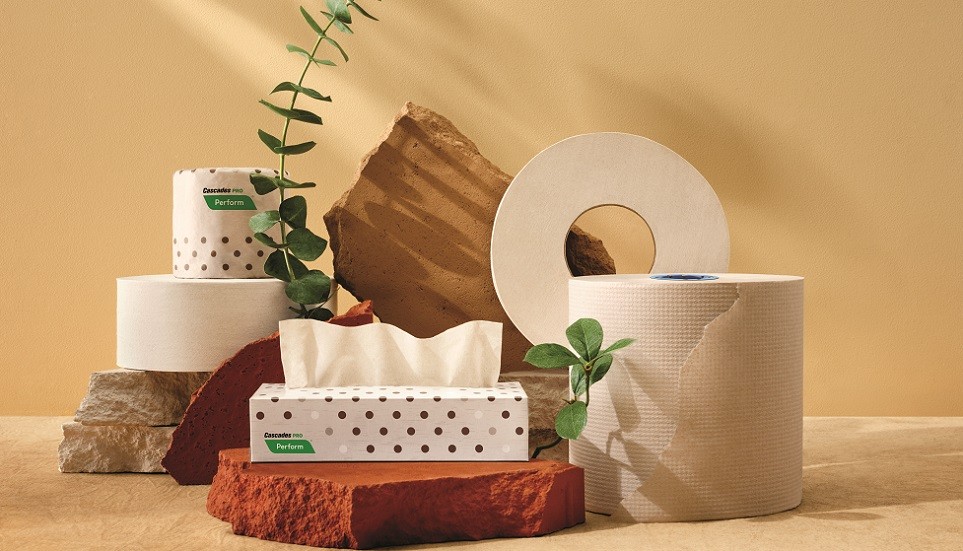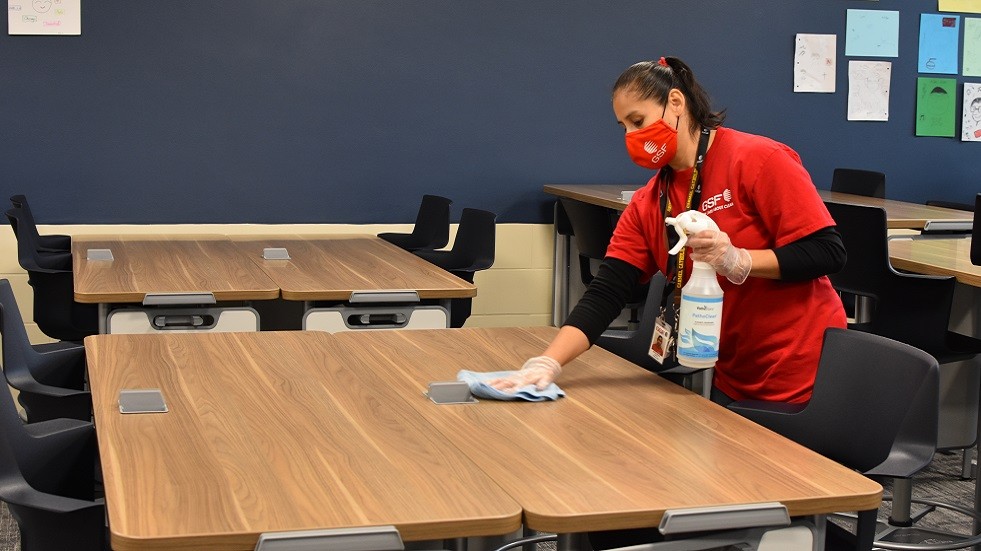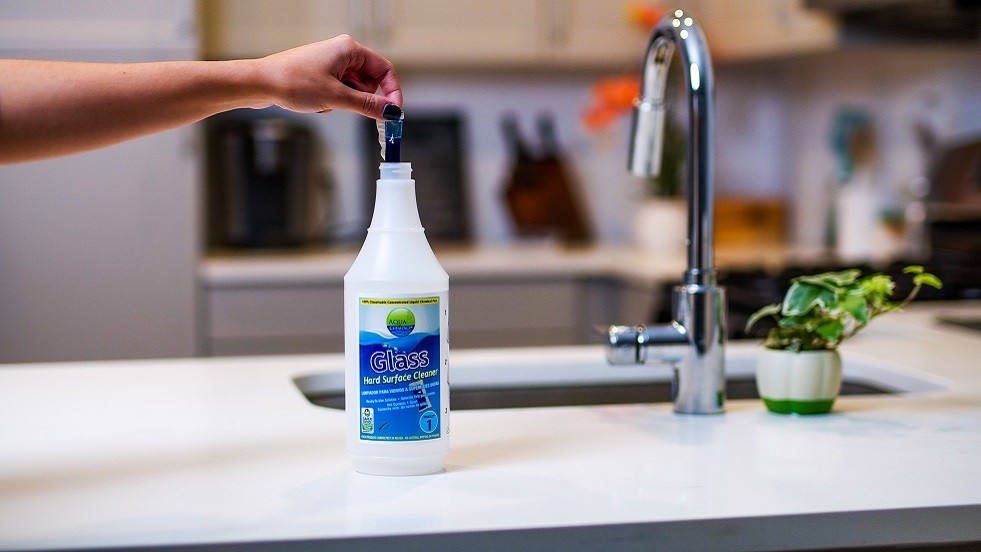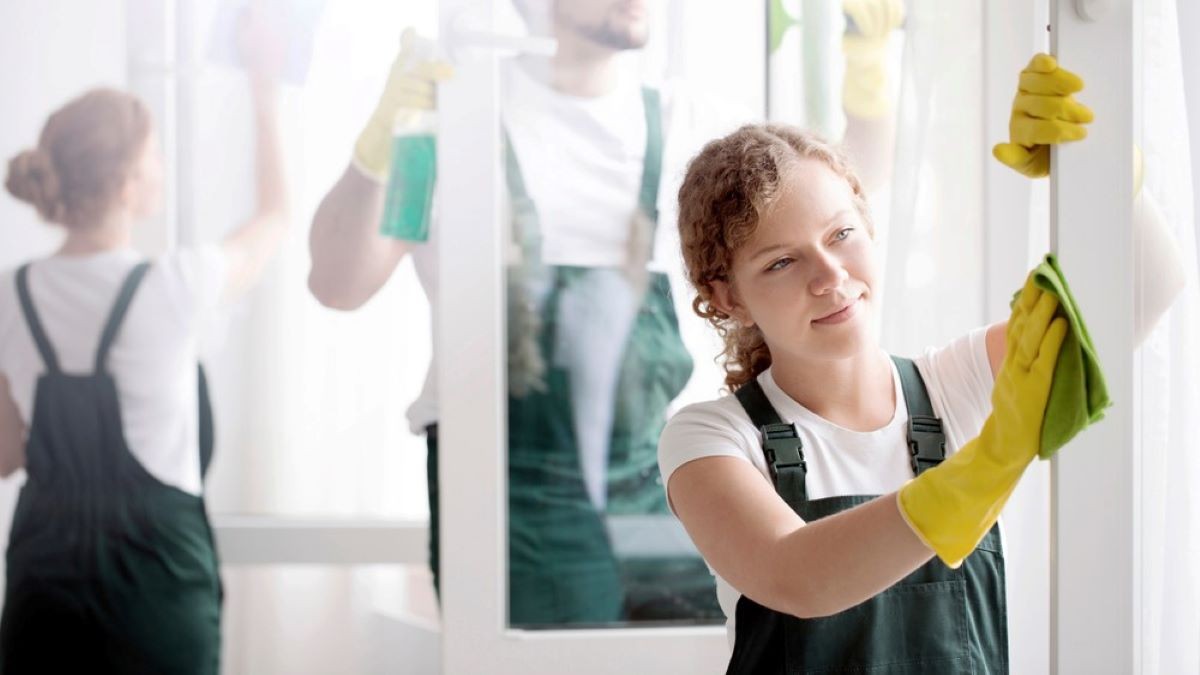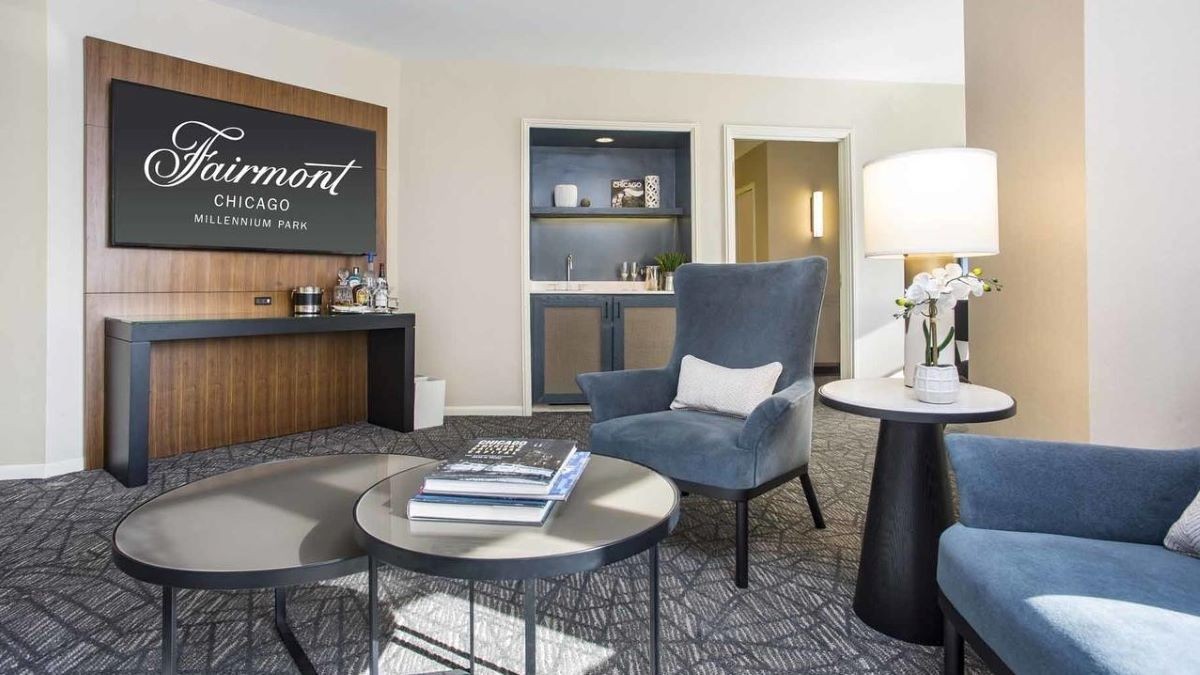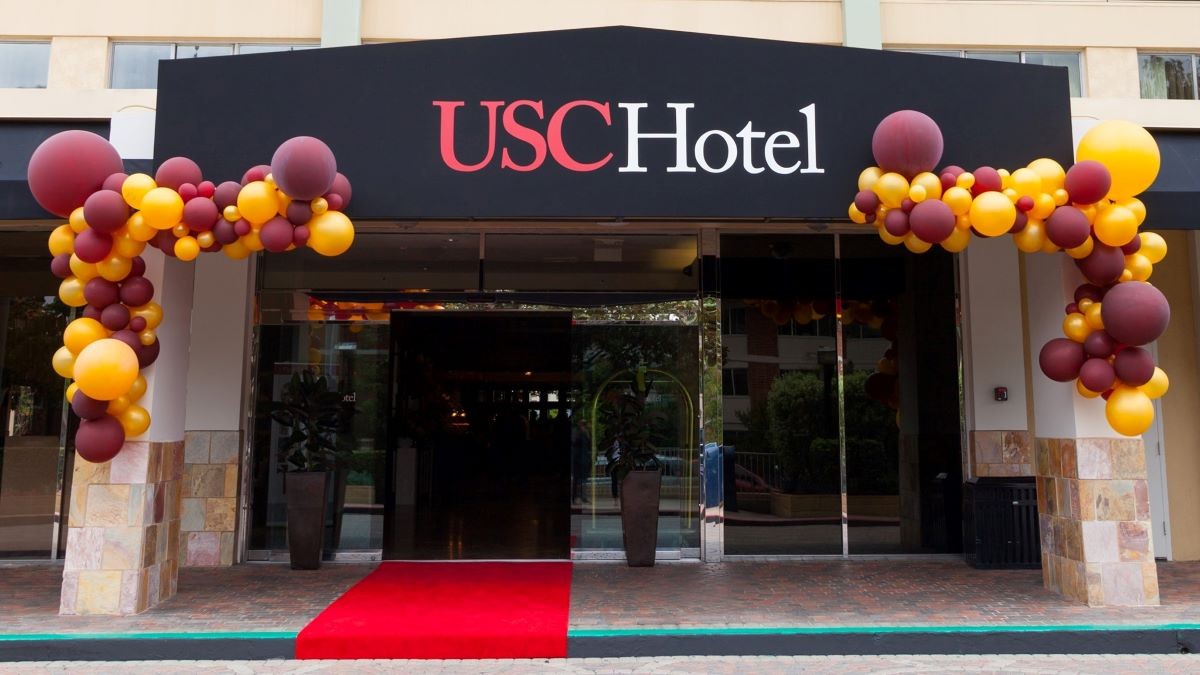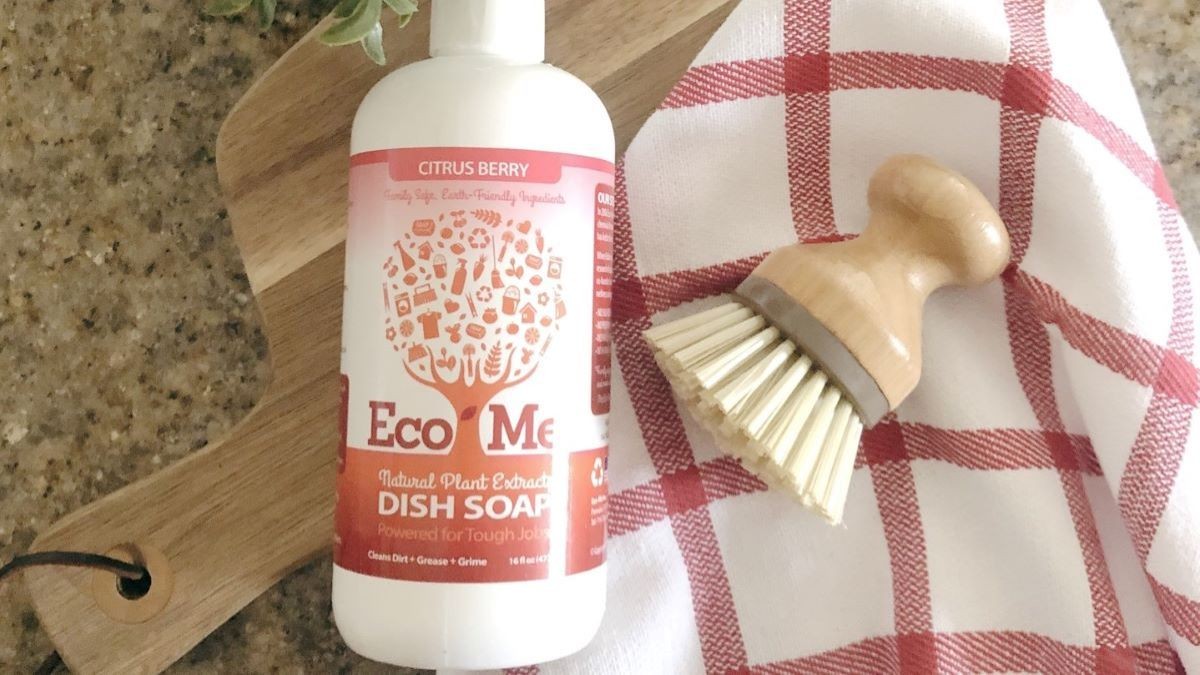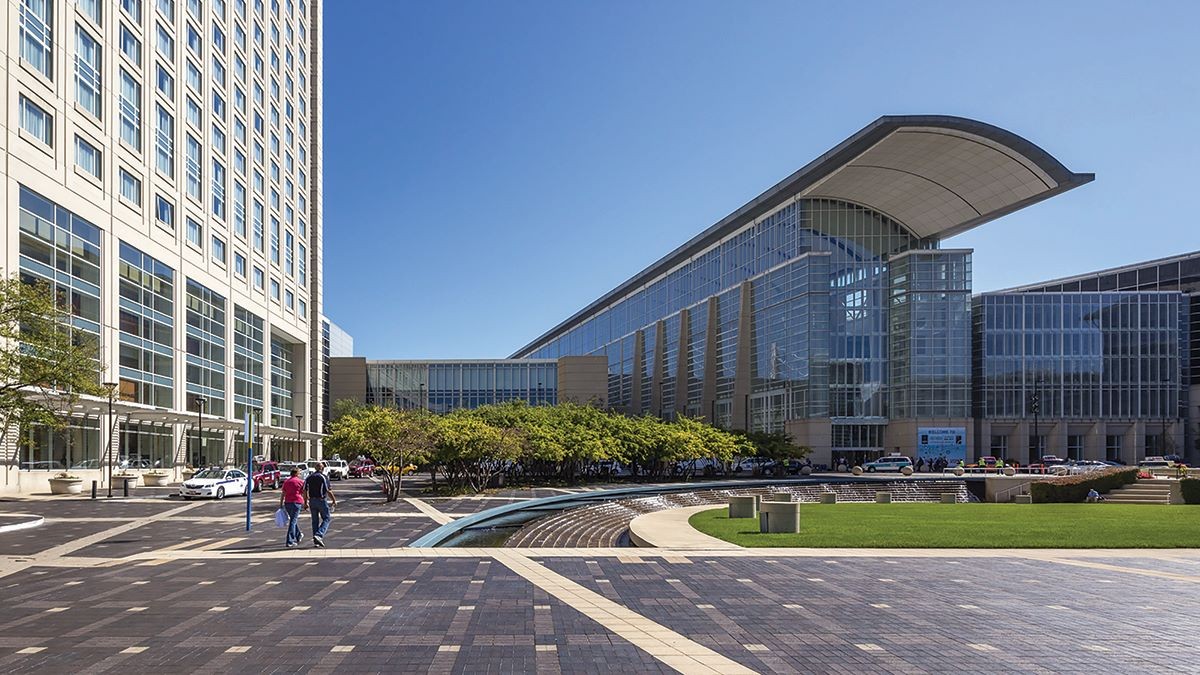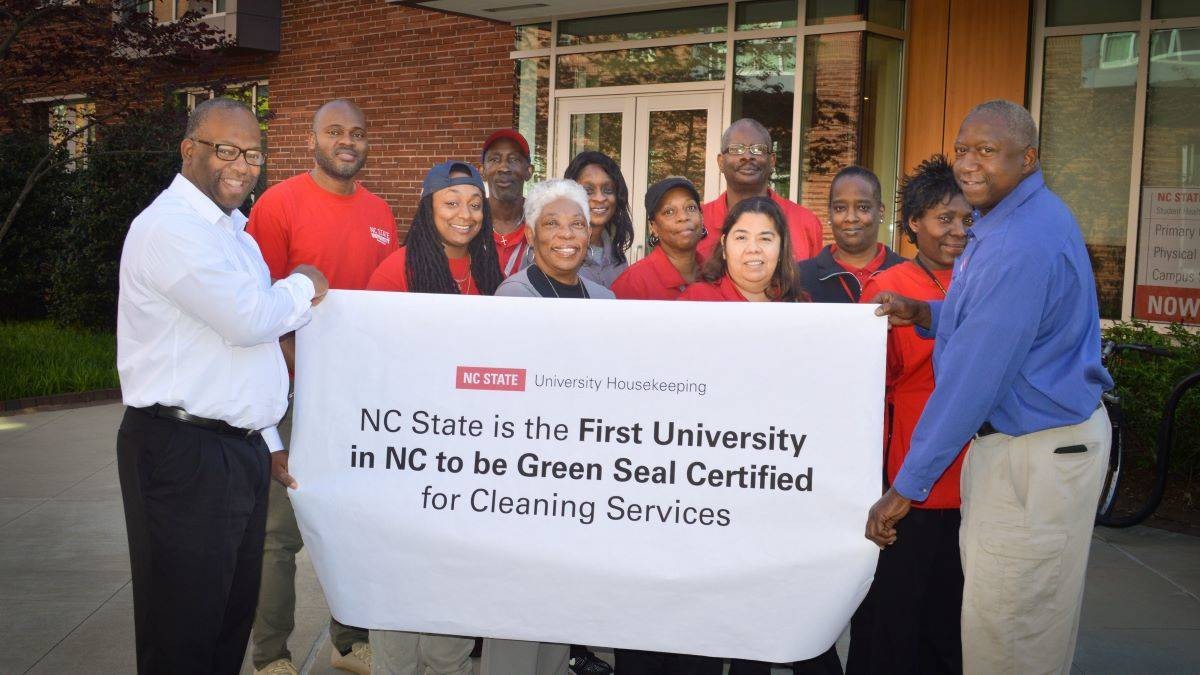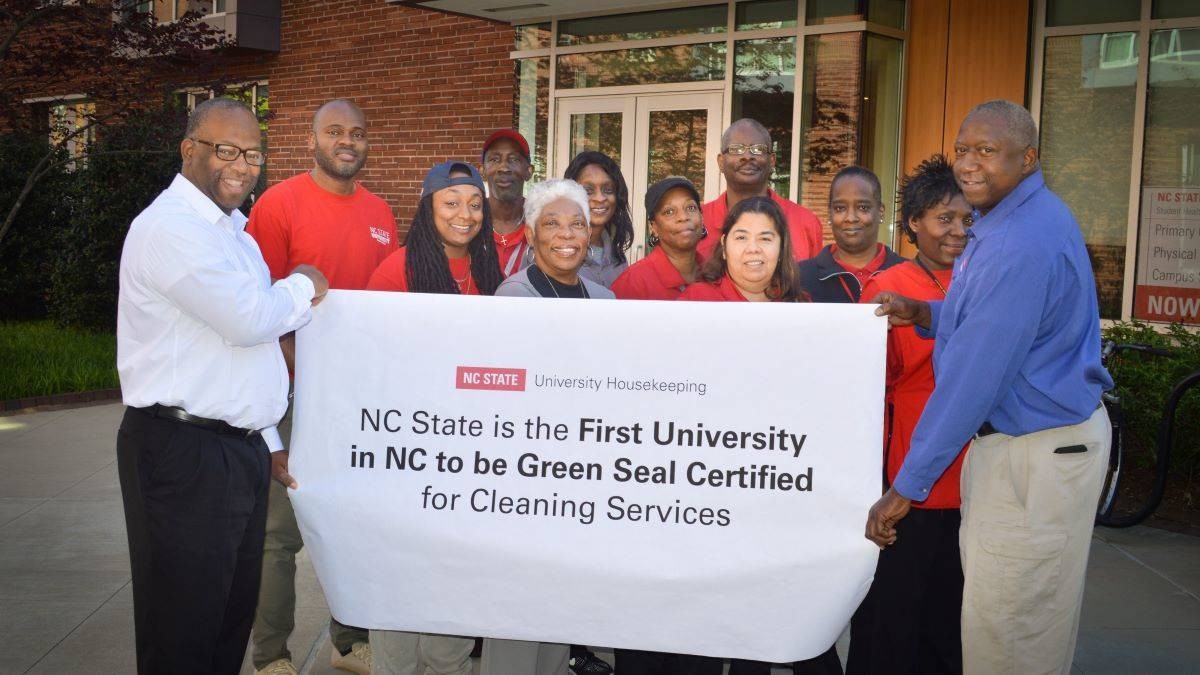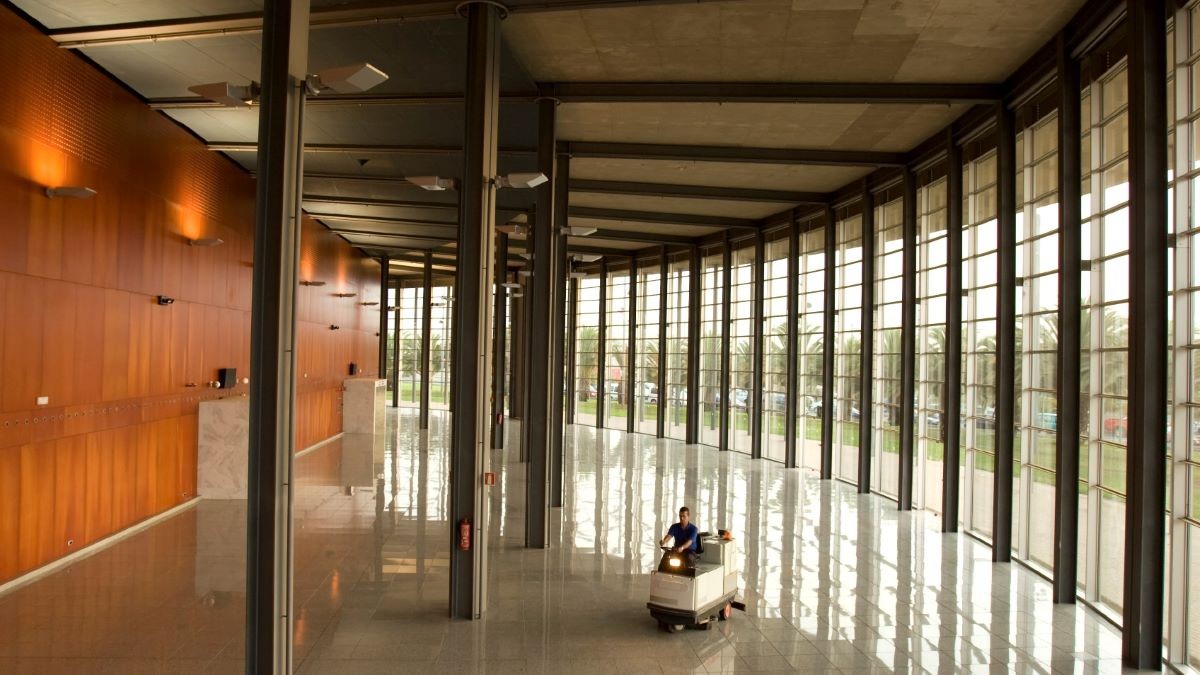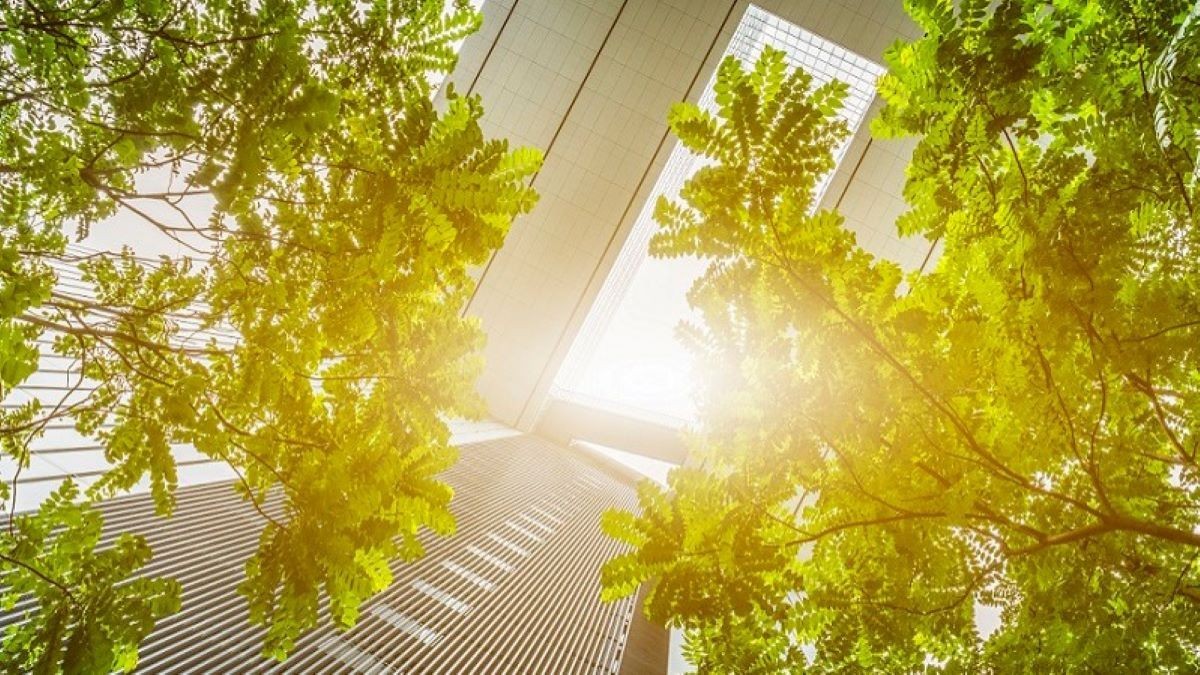The Sofitel Los Angeles at Beverly Hills is the definition of luxury — an urban oasis surrounded by the decadence and glamour of West Hollywood, California. Through ongoing sustainability initiatives, their staff have learned that you don’t have to sacrifice guest experience or quality of service to be green. In fact, being green can improve guest enjoyment and impart a lasting impression that keeps them coming back. In this interview, Rex Umbay, the hotel’s Director of Engineering, sits down with Green Seal’s own Cerise Bridges to discuss why sustainability is important, shares the lessons he’s learned through the hotel’s sustainability journey, and offers practical “how-to” advice for other hotels looking to go green.
Cerise Bridges: Thanks so much for taking the time to share your experience and insights with us, Rex. Let’s start with the basics. Could you give a quick snapshot of the building – the year it was built, recent renovations, etc.?
Rex Umbay: The building was originally built in 1988 as a Sofitel, part of the AccorHotels Group, and was fully renovated in 2006. Soft renovation projects have been taking place since then, including a full renovation of our food and beverage areas (bar and restaurant).
CB: When did the hotel begin to go green and why was it important?
RU: AccorHotels has been pioneering green initiatives and leading sustainability in the hospitality industry since 1994, when its Environment Department was created. In 2002, the Sustainable Development Department was formed, and in 2011, an action plan came to fruition as the Planet 21 program. Planet 21 consisted of 21 sustainable key actions and granted 4 levels of certification to hotels successfully executing certain initiatives. It is at this time that the Sofitel Los Angeles at Beverly Hills made eco-friendly initiatives its number one priority – and nothing has changed since then. Being green is still our own hotel’s main objective — we have a great responsibility to balance our activities with eco-friendly practices. This positive environmental impact starts at the property level. Now, more than ever, we are working on sustaining and improving our green initiatives.
CB: What is one thing you’ve learned during the process and do you have any advice for hotel managers who are just beginning the process of greening their properties?
RU: Without a doubt, sustainability has become a global trend. Customers highly consider your sustainability initiatives when making their decisions on where to stay or conduct their business. Gaining recognition for our actions with green certifications is very honorable, but it is just the beginning. This is why we did not slow down or stop innovating when we received our 4 keys Green Key certification and Green Seal® SILVER Certification, and why we did not stop when our restaurant received the LA Green Business certification. Our guests don’t stop thinking about the planet, why should we?
The advice we would share includes:
1. Check your city, learn what the sustainability initiatives/programs are and take advantage of them — they can help you. Here in Los Angeles, we have the LA Green Lodging Program (LAGLP), a collaboration of the Mayor’s Office and key LA City agencies to encourage hotels to earn Green Seal certification and provide financial incentives. In addition, the LA Department of Water and Power (LADWP) helped us with our lighting and water-saving fixtures upgrades.
2. Your state may have sustainability regulations that are currently in place. Know them and they will guide you. You may be pleasantly surprised that you are already abiding by them. Also, be sure to ask your utility provider about their rebate program and take advantage of its offerings if feasible.
3. Look for certification guidelines from organizations like Green Seal and Green Key and do an in-house audit. Self-examination is the first step to success.
4. Start the process now. There are a lot of organizations out there ready to help.
CB: Because managers can’t do it alone, how do you involve staff and keep them interested and active in the process? Why is this important?
RU: Although the Planet 21 committee and myself are leading the greening process, it is important that all hotel employees are supportive of our green initiatives for them to succeed. Before people can change their habits, whether in the workplace or at home, they need to understand the affect that their actions will have. For this reason, our hotel hosts awareness campaigns for employees to participate in year-round. Earth Hour, Earth Day, World Food Day, and many others are celebrated not only at Sofitel Los Angeles, but also within our Sofitel brand and the entire AccorHotels Group. The celebrations are perfect opportunities for us to explain to the staff why our green actions are so important. Whether meeting with our green partners, detailing the recycling processes, or participating in gardening sessions, the key takeaways are keep people interested in what we do and why we are doing it, not only for the hotel, but for the planet. We also emphasize the fact that our daily activities have a real impact on our community, and that going green also involves a social responsibility. By choosing local environmentally-responsible vendors, whether it is for food products or for printing services, we support the local businesses while reducing our carbon footprint. Think globally, act locally!
CB: What do you still want to accomplish for the hotel?
RU: As mentioned earlier, there are always more ways to improve eco-friendliness and sustainability. We have a couple of new objectives for this year: plant a vegetable garden on our rooftop and replace our major mechanical equipment with energy-efficient units, including our chillers and cooling tower. We are just a few steps away to reaching the highest level of the Planet 21 program and becoming platinum certified, and we hope to succeed this year! We have full support from AccorHotels on this project, as sustainable development is a priority for them now more than ever. Every hotel within this group is willing to exchange ideas for new practices and technologies to become greener — we believe that solidarity is key to accomplishing our goals.
CB: Have you had the opportunity to quantify the benefits of your sustainability initiatives? Any fun stats to share re: water or energy savings (esp. since the lighting upgrade and energy management system), reduced waste, etc.?
RU: Since we started to work on our sustainability, we have saved about 868,793 KWh energy annually (about $121,631/year), about 9,375 HCF water annually (about $49,400/year), plus annual trash reductions of about 24 tons (about $13,750/year). As a result of our cardboard bailer being installed in fall of 2017, we now recycle an average of 4500 pounds per month, with savings of 30% on trash disposal. And due to the installation of our ORCA machine, a unique food waste recycling technology, we have managed to reach zero food, with all food waste composted in-house. The ORCA is housed in a stainless-steel container, and its proprietary, natural microorganism solution works with water and recycled plastic Bio Chips to quickly break down the waste. Through a process called “aerobic digestion,” the ORCA technology constantly churns the material, adding oxygen that accelerates its transformation into earth-friendly water. Within 24 hours, this technology turns food waste into environmentally safe water that flows straight into the municipal sewage system. At Sofitel Los Angeles, we are able to compost an average of 200 pounds per day, and 6,000 pounds per month, with the ORCA machine. The numbers really do say it all! And because we believe sustainable behavior goes hand-in-hand with strong social responsibility, our partially-used personal amenities (shampoos, gels, conditioners and lotions) are donated to the Greater West Hollywood Food Coalition and redistributed to the local homeless shelters, at an average of 400 pounds per quarter. Another social responsibility initiative was signing EPCAT’s Tourism Child Protection Code of Conflict to help prevent the sexual exploitation of children. This code is framed at our front desk, and trainings are regularly done with our employees on how to identify and fight the sexual exploitation of children.
CB: How do you involve guests in the hotel’s green initiatives? Why is this important? What type of feedback have you received from guests regarding the hotel’s green initiatives?
RU: Our guests are the judges and the promoters of our green initiatives, therefore, it is paramount that they are aware them. At Sofitel Los Angeles at Beverly Hills, aside from the usual informative techniques like in-room flyers, we promote a lot our green actions and our green successes on social media platforms. Our social channels are the perfect communication tool to share daily details about our property and create excitement that reaches people on a national and international level. With the use of online promotion techniques, we can reach thousands of potential guests who are looking for greener lodging options. We know that being green is now a very important component for our guests, so we make sure to incorporate our green actions and successes in every step of the customer journey, from the reservation to the post-stay survey. We make sure our staff is fully aware of our green initiatives and can answer all questions posed by our guests during their stay. We now provide full training on our green actions during employee orientation.
CB: What sort of challenges did you overcome when converting and updating systems? Were there any surprises (good or bad), such as the pipes were in better condition that you thought, or the lighting/wires weren’t salvageable, etc. What achievements are most notable or make your team the proudest?
RU: We thought that our initial investment in upgrading existing lighting and water fixtures into energy-efficient ones would be our biggest challenge, but it quickly became our biggest achievement. By taking advantage of a program through our utility vendor, which in our case was LADWP, we were able to upgrade to energy- and water-efficient light bulbs and fixtures with little to no cost to us! This great discovery prompted a sense of optimism in our staff, as they realized the amount of support we had from the city, and it meant a lot to them. By the city demonstrating its immense care for helping us reach our goal, the staff was able to better understand that they were not alone in the process, which encouraged them to increase their efforts in making our property even greener.
CB: Of the sustainability upgrades that you’ve made, what has produced the quickest ROI? What has produced the biggest ROI over time?
RU: As we were implementing our green actions, we quickly realized that some of our projects had an instant ROI, like the lighting upgrade. As mentioned, this was made without an initial investment from the hotel. LADWP calculated the savings of upgrade and gave rebate incentive that covered installation and light bulbs. They took care of everything, which was life-changing for us, and did the same thing for the water-efficient toilet upgrade. Additional ROI successes are our cardboard bailer and ORCA food waste technology, which pay for themselves on a monthly basis through the savings of trash disposal – they’re incredible! All of these projects are very satisfactory from a financial standpoint as well as a motivational standpoint. You can quickly see the positive results, which helps employees and our partners envision what we set out to accomplish.
CB: What are the top three benefits you’ve seen from implementing such a strong sustainability program?
RU: Our most valuable benefit would have to be the savings – both in terms of money and carbon footprint — from these green initiatives. The figures really speak for themselves. Another great benefit we have reaped since earning Green Seal® SILVER Certification and implementing the sustainable actions it requires, is the increased ability to answer to companies’ proposals. Big corporations and technology pioneers like Google or Microsoft have substantial environmental charters in place and want their partners to be the same. We are now aligned with their green criteria and are eligible to host their events. The final benefit is really the engagement of our employees. The excitement and satisfaction they portray when helping the community and the planet is beyond rewarding.
CB: Any additional stories or anecdotes you’d like to share regarding the hotel’s sustainability journey…?
RU: Last year, on World Food Day, we displayed some salad towers on our garden patio and then collected the salads to serve them to our employees in our cafeteria during lunch break. We had prepared the salads with fresh items from our garden on the patio, so we served a delicious salad that was grown and made in house! Our employees were very happy about this initiative and curious about the process. Their elation gave us the idea to extend this concept at a higher level and develop a rooftop garden, which is now part of our 2018 objectives. Ideas truly grow, like seeds in a garden! (Pun intended.)
Of the many reasons to go green, the Sofitel Los Angeles at Beverly Hills has shown that active and engaged staff can really make a difference in a hotel’s green program, and that there can be major benefits to a hotel’s bottom line. By providing a healthier environment for guests and staff and improving efficiencies in hotel equipment and operations, a hotel can also reduce turn-over, potentially increase the number of reservations and event bookings, and save money and precious natural resources along the way.
The good news is that there is no right or wrong way to begin to green your property. Every effort made to upgrade old systems, purchase greener products, and increase efficiency is a step in the right direction.
As Rex says, “Start now. Look for organizations or government programs that are willing to help and take advantage of what they have to offer.” Your own region may offer incentives and tools like Los Angeles’ Green4Green grant money, LADWP’s lighting and water fixture rebates, and LA Better Buildings Challenge’s assistance with water and energy benchmarking requirements. Also, don’t be afraid to get creative. A big part of sustainability is innovation. What works for one property may not work for another. Whether you have 10 rooms or 1000, it is never too late to begin your sustainability journey and no act is too small to make a difference.
Reprinted from the Hotel Business Review with permission from www.HotelExecutive.com.
